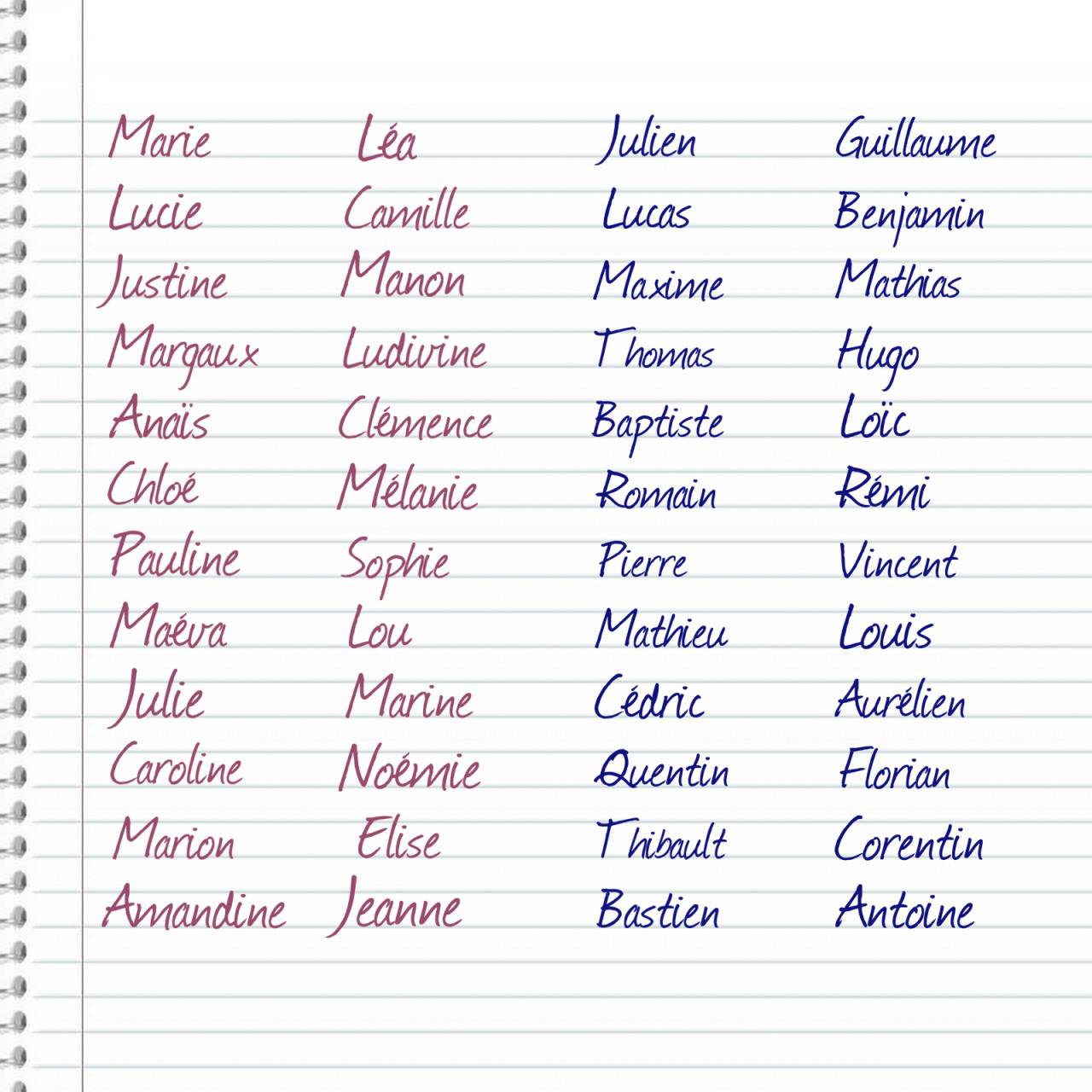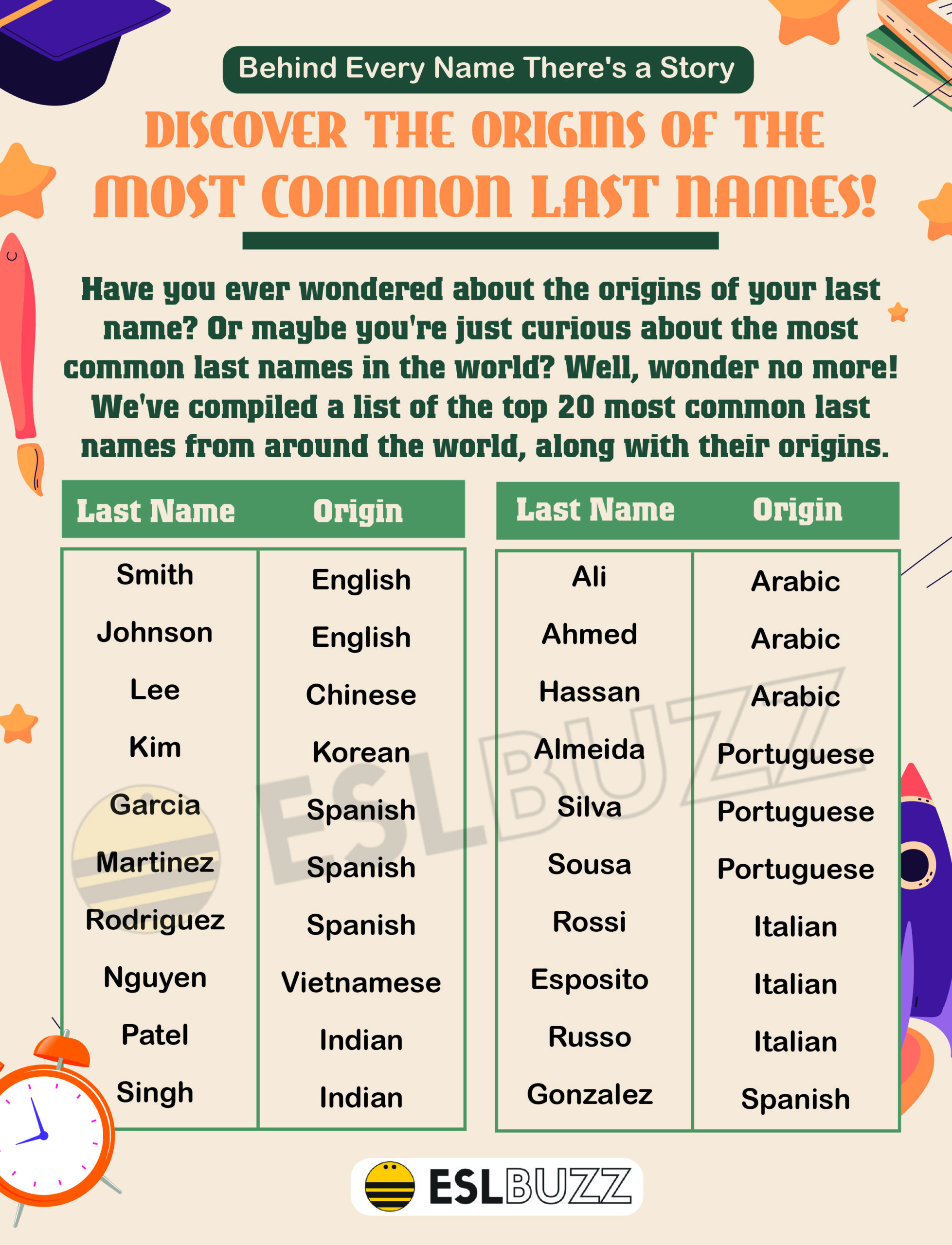Most Common French Last Names: A Dive Into The Roots Of French Surnames
French last names are more than just a collection of letters—they’re a window into history, culture, and identity. Have you ever wondered why some names pop up so frequently in France or among people of French descent? Whether you're tracing your family tree, brushing up on your French heritage, or simply curious about the most common French last names, this article has got you covered. We'll take a deep dive into the origins, meanings, and significance of these names, all while keeping things engaging and easy to digest.
Let's face it, surnames can tell a story. They often carry hints about where someone's ancestors came from, what they did for a living, or even physical traits that set them apart. The most common French last names, like Dupont, Martin, or Leclerc, aren’t random—they’ve been passed down through generations, shaped by history, migration, and societal changes. So, buckle up, because we’re about to uncover the fascinating world of French surnames!
Before we jump into the nitty-gritty, here's a quick heads-up: This article is packed with useful info, stats, and fun facts. You’ll learn not only about the most common French last names but also how they’ve evolved over time. Plus, we’ll sprinkle in some cool trivia to keep things interesting. Ready? Let’s go!
- Snoqualmie Pass Driving Conditions Your Ultimate Guide To Safe Winter Travel
- Nra Dana Loesch The Story Behind The Controversial Figure
Here’s a quick table of contents to help you navigate:
- Origins of French Last Names
- Most Common French Last Names
- Meanings Behind the Names
- Geographical Influence on Surnames
- Historical Context of French Surnames
- Famous People with French Last Names
- Migration and the Spread of French Surnames
- Modern-Day Relevance of French Last Names
- Tips for Tracing Your French Heritage
- Wrapping It Up
Origins of French Last Names
French last names didn’t just appear out of thin air. They have deep roots in medieval Europe when people started adopting fixed surnames to distinguish themselves from others in their communities. Back in the day, most folks were known by their first names, but as populations grew, it became necessary to add something extra. Enter the last name!
These names were often derived from four main categories: patronymics (based on the father’s name), occupational (related to a person’s job), locational (indicating where someone lived), and descriptive (referring to physical characteristics or personality traits). For example, “Dupont” means “of the bridge,” pointing to someone who lived near a bridge or worked on one.
- Gg Now Roblox Your Ultimate Guide To The Hottest Gaming Phenomenon
- Howie Mandel Death Debunking The Rumors And Celebrating A Legend
Fun fact: Some French last names were originally nicknames. Take “Leclerc,” for instance. It comes from the Latin word “clericus,” meaning clerk or scholar. So, if your ancestor was a learned person, chances are they ended up with this last name.
How Last Names Became Fixed
Back in the day, surnames weren’t always permanent. People might change their last names depending on where they moved or what job they took up. But as societies became more organized, especially with the rise of feudal systems and taxation, fixed surnames became essential. The French government needed a way to keep track of citizens, and surnames provided the perfect solution.
This transition wasn’t immediate, though. It took centuries for last names to fully stick, and even then, variations occurred due to regional dialects and spelling inconsistencies. Imagine trying to spell “Dupont” when there weren’t any standardized rules—it could easily become “Du Pont” or even “Dupon.”
Most Common French Last Names
So, what are the most common French last names today? Let’s break it down. According to various studies and census data, here are some of the top contenders:
- Dupont
- Martin
- Bernard
- Thomas
- Robert
- Richard
- Leclerc
- Moreau
- Garcia
- Andre
These names dominate the French surname landscape, but why? Well, it all boils down to history. Names like Dupont and Martin have been around for centuries, spreading across regions and becoming ingrained in French culture.
Why These Names Are So Popular
Take “Dupont” as an example. Its meaning—“of the bridge”—makes sense when you consider how important bridges were in medieval France. Bridges connected towns, facilitated trade, and symbolized progress. Similarly, “Martin” is a nod to Saint Martin of Tours, a beloved figure in French Catholicism. People often named their children after saints, and over time, those names became last names too.
Other common names, like Bernard and Thomas, reflect religious influences. Bernard, for instance, is derived from the Latin words “bear” and “strong,” symbolizing strength and courage. Thomas, on the other hand, comes from the Aramaic word for “twin,” highlighting a personal characteristic.
Meanings Behind the Names
Every French last name has a story to tell. By understanding the meaning behind these names, we gain insight into the lives of our ancestors. Let’s explore a few examples:
Dupont: As mentioned earlier, this name means “of the bridge.” It could indicate that the original bearer lived near a bridge or worked as a bridge builder.
Leclerc: Derived from “clericus,” this name suggests someone who was educated or worked in a clerical role.
Moreau: This name comes from the Latin word “maurus,” meaning dark-skinned. It was likely used to describe someone with a darker complexion, possibly of Mediterranean descent.
Interesting Variations
French last names often have variations depending on the region. For example, “Dupont” might appear as “Dupon” or “Du Pont” in different parts of France. Similarly, “Leclerc” could become “Leroux” or “Lecuyer.” These variations reflect local dialects and spelling conventions, adding another layer of complexity to the study of French surnames.
Geographical Influence on Surnames
The geography of France played a huge role in shaping its last names. Different regions had distinct naming patterns based on local traditions and environments. For instance, names like “Dupont” and “Martin” are more common in northern France, while names like “Garcia” and “Andre” are prevalent in southern regions.
This regional diversity is fascinating because it shows how surnames adapted to local conditions. In mountainous areas, you might find names related to peaks or valleys, while coastal regions might have names tied to fishing or seafaring.
Regional Naming Patterns
Here’s a quick breakdown of regional naming patterns:
- Northern France: Names like Dupont, Martin, and Leclerc dominate.
- Southern France: Names like Garcia, Andre, and Roux are more common.
- Breton Region: Unique names like Le Gall and Le Borgne appear frequently.
These patterns reflect the cultural and linguistic diversity of France, reminding us that the country is much more than just one homogenous entity.
Historical Context of French Surnames
To truly understand French last names, we need to look at the historical context. From the Middle Ages to the modern era, surnames have evolved alongside society. During the feudal period, last names helped identify vassals and serfs, while in later centuries, they became tools for administrative purposes.
One significant event that impacted French surnames was the French Revolution. The revolution abolished many aristocratic titles, forcing nobles to adopt simpler, more common names. This democratization of surnames leveled the playing field, making it harder to distinguish between social classes based solely on a last name.
The Impact of Revolution
The French Revolution wasn’t just about political change—it also reshaped the way people thought about identity. By eliminating noble titles, the revolution encouraged the adoption of more egalitarian names. This shift contributed to the widespread use of common surnames like Dupont and Martin, which remain popular to this day.
Famous People with French Last Names
Many famous figures throughout history have carried French last names. From artists to scientists, politicians to athletes, these individuals have left an indelible mark on the world. Here are a few examples:
- Marie Curie: Born Maria Skłodowska, she adopted the French surname Curie after marrying Pierre Curie. Together, they revolutionized the field of radioactivity.
- Victor Hugo: A towering figure in French literature, Hugo’s works like “Les Misérables” and “The Hunchback of Notre-Dame” remain timeless classics.
- Edith Piaf: Known as the “Sparrow of Paris,” Piaf’s powerful voice and emotional performances made her an icon of French music.
A Table of Famous French Last Names
| Name | Profession | Notable Achievements |
|---|---|---|
| Marie Curie | Scientist | Discovered radioactivity; first woman to win a Nobel Prize |
| Victor Hugo | Author | Wrote “Les Misérables” and “The Hunchback of Notre-Dame” |
| Edith Piaf | Singer | Iconic French chanteuse; sang “La Vie en Rose” |
Migration and the Spread of French Surnames
French last names didn’t stay confined to France. Thanks to migration, colonization, and global trade, these names spread across the world. Today, you can find people with French surnames in countries like Canada, the United States, Australia, and beyond.
In Canada, for example, French surnames are incredibly common, especially in Quebec. Names like Dupont, Martin, and Leclerc are as familiar there as they are in France. Similarly, in the United States, French surnames often appear among families of Acadian or Cajun descent.
Global Reach of French Last Names
Here’s a quick look at how French last names traveled the globe:
- Canada: French surnames dominate in Quebec and parts of the Maritimes.
- United States: Found among Acadian, Cajun, and Creole communities.
- Australia: Introduced through early settlers and immigrants.
This global distribution highlights the enduring legacy of French culture and its influence on the world.
Modern-Day Relevance of French Last Names
In today’s world, French last names continue to hold significance. They serve as a link to the past, connecting individuals to their heritage and ancestry. For many, discovering their French roots through last names is a rewarding journey that sheds light on their family history.
Moreover, French last names have cultural cachet. They evoke images of sophistication, artistry, and intellectualism—qualities that are highly valued in many societies. Whether it’s a name like Dupont or Leclerc, these surnames carry a certain je ne sais quoi that resonates with people around the globe.
Using French Last Names Today
Modern technology has made it easier than ever to trace your French ancestry. Online genealogy platforms, DNA testing services, and digital archives provide tools for exploring your family tree. If you’ve always wondered about your French last name, now’s the perfect time to dig deeper!
Tips for Tracing Your French Heritage
Interested in uncovering your French roots? Here are a few tips to get you started:
- Start with family records: Gather information from older relatives, birth certificates, and
- Stream Free Movies Online Websites Your Ultimate Guide To Legal And Safe Entertainment
- Download The Movies For Free Your Ultimate Guide To2151227861 Streaming And Downloading

le french cliché • Common French Names Cause French people are no...

Common Last Names Fascinating World of Most Common Last Names ESLBUZZ

Most common last names by country Vivid Maps